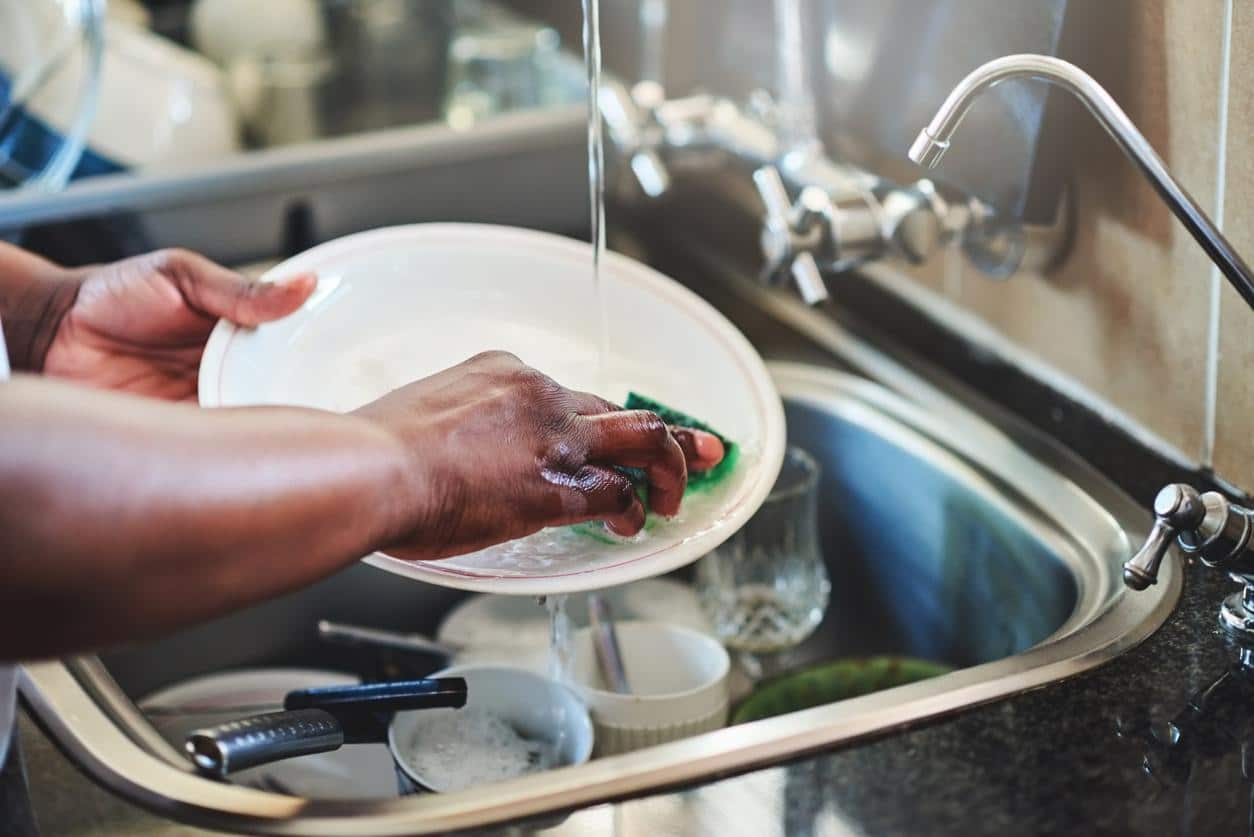
Seven common myths about everyday home appliances
We’ve all heard old wives’ tales – from eating carrots to improve your eyesight to not going outside with wet hair unless you want to get sick. These old wives’ tales can even creep into falsities about your home appliances. During an appliance service visit, our service team at S&S Appliance has heard many, many myths that have been circulating for years.
Our expert service technicians at S&S Appliance compiled the six most common myths about home appliances and debunked the fiction.
Six common myths about everyday home appliances
1. Microwaves emit harmful radiation
Have you ever been told not to stand too close to the microwave because of its radiation? Turns out, this statement is a bit of a myth. While microwaves utilize a type of non-ionizing radiation, these home appliances are not known to damage DNA inside cells or at the same hazard level as an X-ray. It’s also important to note that microwaves do not make your food “radioactive” or dangerous to eat.
While exceptionally rare, damage can occur if your microwave is leaking radiation. If you’re concerned that your microwave is leaking radiation, it’s time to call a trusted, local service company for home appliance service and maintenance.
Truth: The most common way people are injured from a microwave is from touching hot containers, overheated foods, or being exposed to exploding liquids. By using rational safety precautions, handling hot foods and beverages cooked in microwaves should not result in harm.
2. Dishes should be pre-rinsed before going in the dishwasher
While commonly practiced and believed, pre-rinsing your dishes does not help your dishes become cleaner. While it seems logical, rinsing your dishes before placing them in your dishwasher is unnecessary, and can even cause more harm than good.
Most dishwashers and detergents are made expecting food particles to still be attached to dishes. Without these particles to cling to, the detergent often doesn’t perform as well, resulting in less clean dishes. Additionally, without the usual grease and grime, the alkaline levels in your dishwasher will be much higher than normal.
Not to mention, pre-rinsing uses significantly more water than you expect. Cutting out this step will reduce your water usage and save money on your water bill.
Truth: You already spend enough time doing your dishes. Don’t stress about rinsing before placing dishes in the dishwasher. Save time, money, and energy by skipping the step of pre-rinsing!
3. Home appliances don’t use power in standby mode
It’s an incredibly common belief that when your home appliances are “off” that they are no longer using power. Unfortunately, this is not the case. Even in a sleep or standby mode, your home appliances are still using a notable volume of power and electricity. The amount of energy that is being consumed during standby mode is going to differ based on the home appliance.
Truth: If you’re looking to reduce your power consumption, don’t just leave your home appliances in standby mode. Instead, pull the plug! Or, you can always invest in a surge protector.
4. Hand washing dishes uses less water than a dishwasher
Most people assume that you’re conserving water when you decide to handwash rather than use your dishwasher. However, this is often not true. As with most new home appliances, dishwashers now come with an energy efficiency setting that makes for less water consumption.
Even without using an energy-saving setting, most dishwashers use four to five gallons of water per cycle. Meanwhile, the average flow rate of a kitchen faucet is a gallon per minute.
Truth: Unless you are filling up your sink, turning off the faucet, and only using a small amount of water, hand washing uses significantly more water than a dishwasher. Using a home appliance such as your dishwasher on the energy efficiency setting is better than doing your dishes the old fashioned way.
5. Not using your home appliances as often leads to longer life
Your home appliances are made to be used regularly. It makes sense that someone would think that less use would lead to less wear-and-tear. But in actuality, home appliances need to be used often to keep them in their best shape.
A common home appliance example of this is your dishwasher. Dishwashers are made with seals that are designed to work best in damp conditions. If you don’t use your dishwasher, these seals can crack and break, resulting in required appliance service and repair.
Truth: Refraining from using your home appliances can result in damage, not a long life. For longer-lasting home appliances, ask an appliance service technician for tips on ways to properly maintain your A/C unit, dishwasher, washing machine, and other appliances.
6. Dishwashers fill all the way up with water during a cycle
Have you ever been worried about opening your dishwasher mid-cycle out of fear of a flooded kitchen? You’re not alone! The good news is that your dishwasher does not actually fill up past the tub below the bottom of the door. If your dishwasher gets stuck and you need appliance service, you don’t have to worry about any flooding.
Truth: Dishwashers fill up the bottom tub and use a system of water jets to clean your dishes. Opening the dishwasher midway through a cycle won’t cause flooding, but it will hit you with a big gush of steam!
Have more questions about home appliance myths? Contact S&S Appliance!
Hopefully, debunking these myths will help you to better take care of your home appliances. But if the situation arises where you’re in need of appliance service and repair, we’re here for you.
Call us at 1-205-426-5468. S&S Appliance services home appliances in Birmingham, Huntsville, Montgomery, Mobile/Panhandle, and other surrounding Alabama areas. To schedule an appointment, give us a call or schedule an appointment online.

